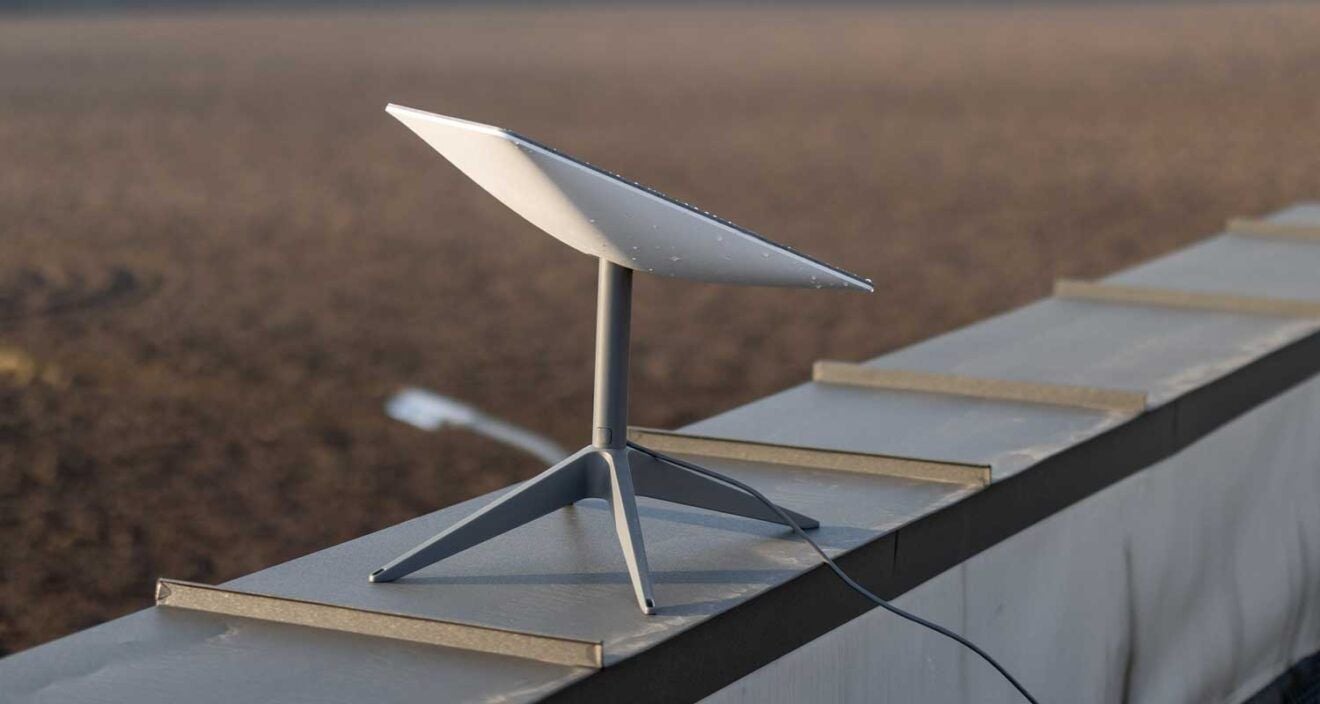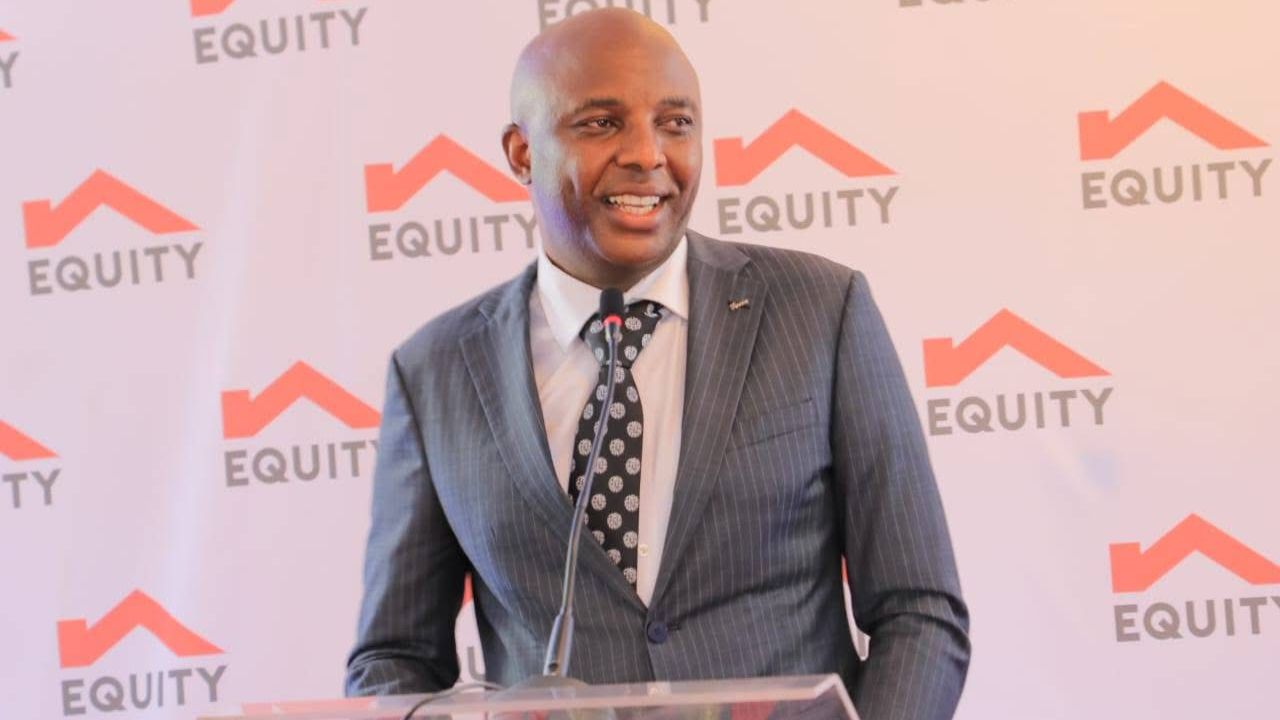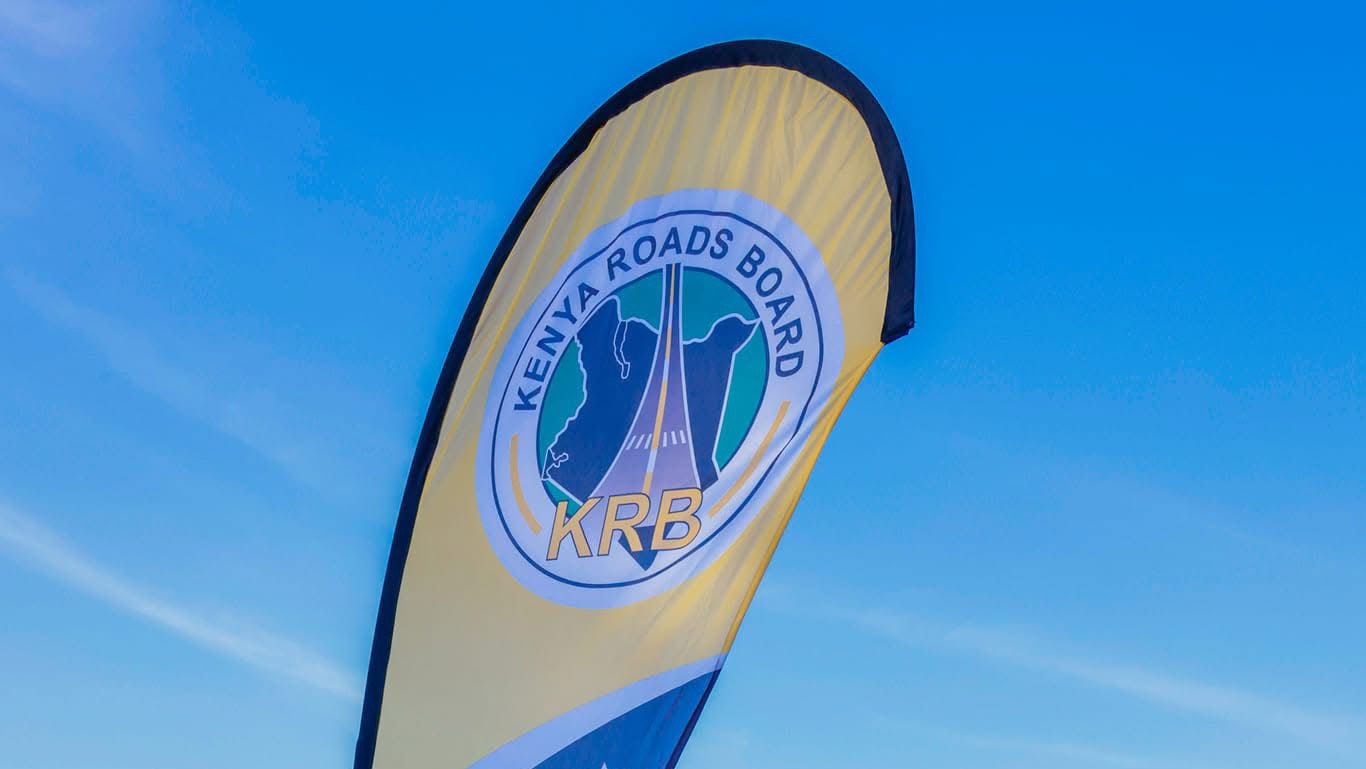In our segment of #KenyaWomenSeries, we feature, Marceline Nyambala. She currently serves as the Executive Director at the Association of Media Women in Kenya (AMWIK). She dreams for a world with more equal opportunities for all - a borderless world- that is not so capitalistic, where everyone finds the basics that they require and technology is more accessible to everyone.
Nyambala believes that this would improve decision-making processes and access to opportunities. In return, those with resources and skills would lend more for the good of society and for the sake of the disadvantaged and marginalised. She hopes for a world where women don’t shy away from leadership!
Marceline’s career began at Venny Communication, where she did an insurance publication on behalf of the Association of Insurance Brokers (AIBK) before joining the East African Standard as a Business Reporter - as the only lady on the business desk at the time. “The internet was growing, and the first Internet Service Providers (ISPs) were Africa online. So we had conversations on E-commerce, product launches, and Annual General Meetings. I had a minor in Business Administration and a major in Communication, so this helped a lot.
I also wrote on education issues. The education Editor then, the late Kihumba Kamotho, would have me accompany him to report on the KCPE and KCSE exams. I was to capture the gender angle of the story because, at that time, girls in Nyanza, Coast, and North Eastern were performing poorly. My stories also delved at transition issues for girls from primary to high school, amongst other areas. These were my first interactions with gender issues.
Later, I started reporting on environmental issues and got stories to the newspaper’s front page, especially when international environmental meetings took place in Nairobi under Klause Toepfer, the head of UNEP who was a former Environment Minister and Anna Tibaijika at UN-Habitat. My nature of assignment provided opportunities to travel and explored bungee jumping on Victoria falls and visited game reserves in Zimbabwe and Botswana as I looked at the human-animal conflict.
Read More
My final stint was with the Big Issue, a weekly publication. By then, I was a member of AMWIK and often referred to the Bomas Constitutional conference as a writer for Safeguarding the Gains of Women in Constitution - a project run by a coalition of women organisations. This introduced me to gender and constitutional issues and helped me network with many eminent Kenyans and activists.
Soon after, I had a stint at Ace Communications – as a Media Officer managing the Federation of Women lawyers Account. I also served as a Regional Communication and Knowledge management officer for Water for People Africa between 2012 and 2014, a US-based international organisation. This exposed me to regional work in Africa – Rwanda, Uganda, and Malawi.
1. You have served in different roles at AMWIK before becoming the Executive Director; briefly tell us some of your proud moments.
Steering AMWIK during a time of crisis- due to the global COVID-19 pandemic- and tenaciously keeping the organisation afloat tops it all. We have managed to secure and attract several partnerships and grants amongst them; the STITCH- Strengthened Women’s Network project with the European Union/Oxfam/FEMNET that is running in seven African countries with AMWIK and Young Women Leadership Initiative (YALI) as the other two organisations, and USAID – Safeguarding Democratic Gains Project (SADES), a grant to strengthen media Associations that saw all AMWIK staff benefit from management coaching from Internews/USAID and in return improved our systems.
Before this, I managed over 20 grants, including UN Women, when I worked as a Programme Officer and later Programmes Manager at AMWIK. I sought support for more institution strengthening, which resulted in the review of AMWIK’s Strategic Plan and Constitution and a Resource Mobilisation Strategy. Currently, we are in the process of developing a FEMINIST Monitoring Evaluation Accounting Learning (MEAL), as well as training in policy advocacy and men-to-men engagement.
Collaborations with the Media Sector Working Group is another key sector-wide achievement. We outlined industry issues that we have begun to address. For example, AMWIK is picking up the role of addressing sexual harassment in our Kenyan media houses and creating an external safe space for women.
Other achievements include facilitating the entry of Women in News and the Journalist for Human Rights projects/organisations in Kenya –which has contributed to the work of women and media in Kenya. I have also helped conceptualise several projects and research projects in online violence and the manuals on Sexual Reproductive Health Rights (SRHR).
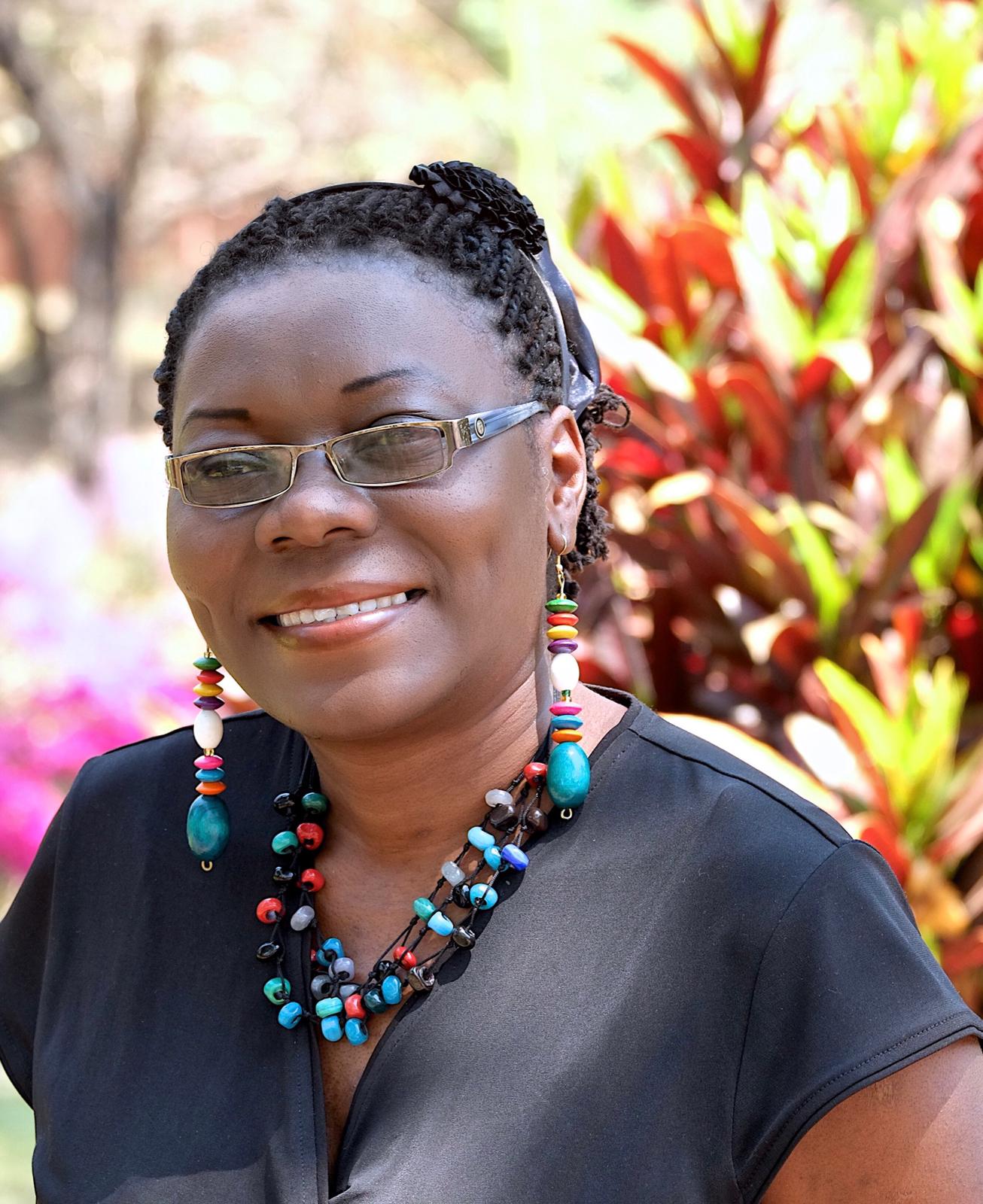
File Image of Marceline Nyambala, the Executive Director at the Association of Media Women in Kenya (AMWIK).
2. As the Executive Director of AMWIK, share with us some significant wins of the association over the years and why you believe every Kenyan woman in the media professional should join AMWIK.
AMWIK has impacted policies and legislation at the national and regional levels, including influencing the FGM Prohibition law, Sexual Offences Law, Freedom of Information, Children’s Act, Media Act, and currently collaborating in reviewing the laws related to media and technology. We have also lobbied and advocated for the enactment of the two-thirds gender rule.
We are a membership association and a non-governmental organisation with over 300 members and a network of over 600 women journalists, communicators, and academics. We use the media to seek and promote an informed and resourceful society through professional development and transformation of the media to enhance the status of women in Kenya.
We have done this by focusing on five thematic areas over the years:
- Media development and membership.
- Women’s Economic Empowerment.
- Sexual Reproductive Health Rights (SRHR).
- Gender and Governance.
- Digital Rights and Security.
Our wins include but are not limited to capacity building of our members and other journalists in the region through directly sponsoring more than 26 members under a revolving scholarship fund to upgrade their studies and position themselves professionally. In addition, we have contributed significantly to the positioning of women in key management positions in media houses and in communications jobs.
AMWIK members have grown professionally and are offering leadership in various boards, including the Media Council of Kenya, Green Belt Movement, Siasa Place, and WANIFRA. AMWIK Members have won multiple scholarships and fellowships and are members of the alumni network. In addition, AMWIK has contributed to effective media use, which has led to some members getting nominated and elected for political leaders such as Alice Chae, Dennitah Ghati, Naisula Lesuuda, to mention a few.
Through the trainings conducted by AMWIK to journalists in collaboration with partners, we have provided story grants, some of which have won awards and brought significant impact on account of the story interventions. During this COVID-19 period, we have provided 150 story grants to address the COVID-19 situation and also intervened in journalists’ welfare.
Over the years, we have contributed significantly to improving gender-sensitive reporting, which has been embraced; however, a lot needs to be done on account of many new entrants to the industry.
AMWIK is a repository hub for research material on different media and gender issues, which can be sourced from our website. We have conducted community radio listening groups in collaboration with women’s groups in over 30 counties on Gender-Based Violence, Civic Education, Female Genital Mutilation/cut (FGM/C), Peace, Child Labour, SRHR, Economic Empowerment, to mention but a few.
AMWIK was a founding board member of the East African Business Women Platform, a hub for promoting cross-border trade and collaboration amongst businesswomen and associations.
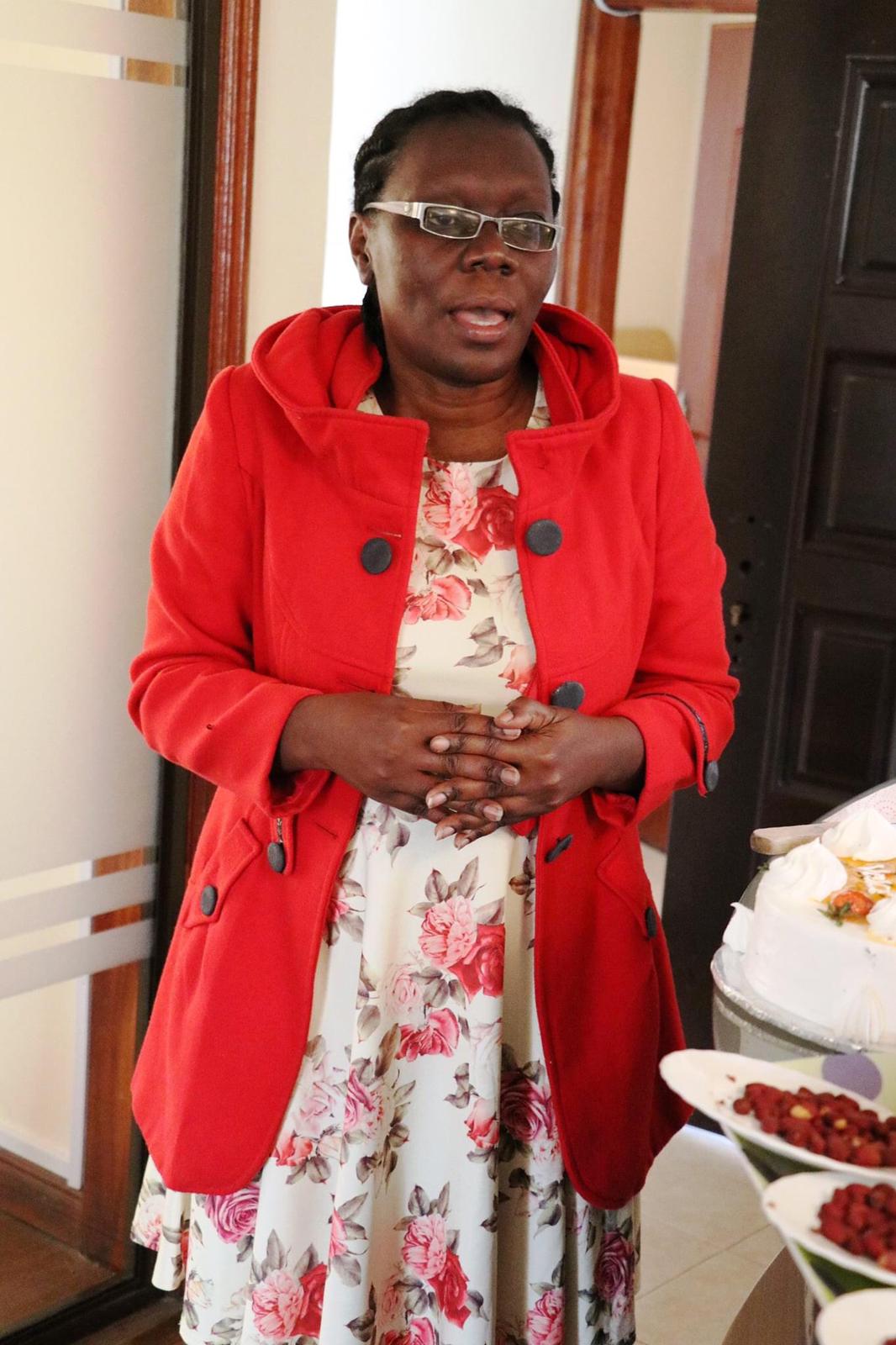
3. In describing the status of women in Kenya, what are some of the challenges women face when climbing the career ladder, and what practical tips can they use to navigate these challenges?
The status of Kenyan Women in media, has gradually improved from where it was when AMWIK was registered. There is an increase in the number of media stations owned by women and where women are in top management. We also have many entrants joining the media profession, but unfortunately, we only have one top senior woman at the editorial level. The status keeps fluctuating as there seems to be a revolving door where women come in and exit after some time.
Some of the challenges include:
Sexual harassment; a report released by MCK in 2020 indicates 73 percent of female journalists are likely to experience sexual harassment even from news sources.
Women fail to position themselves where opportunities abound, up-skill, and sit on strategic tables with career progression.
Women also face intimidation in their leadership due to the patriarchal nature of the media space, especially at the top, which can be intimidating for new entrants.
Long working hours and demanding deadlines make others opt out specifically due to parenthood roles. In addition, multiple roles of women in society don’t allow them adequate time for networking and skills-building, making them less competitive. However, through coaching and mentorship, women learn to navigate these scenarios and are showing up strongly in their spaces of influence.
To address the issue of sexual harassment, AMWIK is playing the rapporteuring and documenting role in Kenya. We are committed to addressing long-standing issues in the media, including low pay, no pay, pay disparities, media laws, and media sustainability as part of the Kenya Media Sector Working Group (KMSWG).
Some of the practical tips for women in Media, Communications, and PR are:
Have a career plan to guide your path, ensure that you hit your targets and know where to invest your time.
Get a coach or a mentor. I have benefitted from coaches and mentors who have brought insights to issues that I am sometimes utterly blind to.
Join a professional association like AMWIK to network with industry colleagues, get updates on industry issues, skills and training, and tap into opportunities.
Learn, learn, and learn some more. Don’t be content that you know enough or are an expert in your field. You need knowledge in so many other areas that are critical to your work. Also, be willing to unlearn what you recognise as an approach that is no longer feasible.
Take risks. The world is changing, and every day in decision-making and problem-solving, risks have to be taken.
Finally, be courageous and strong — the Bible says so.
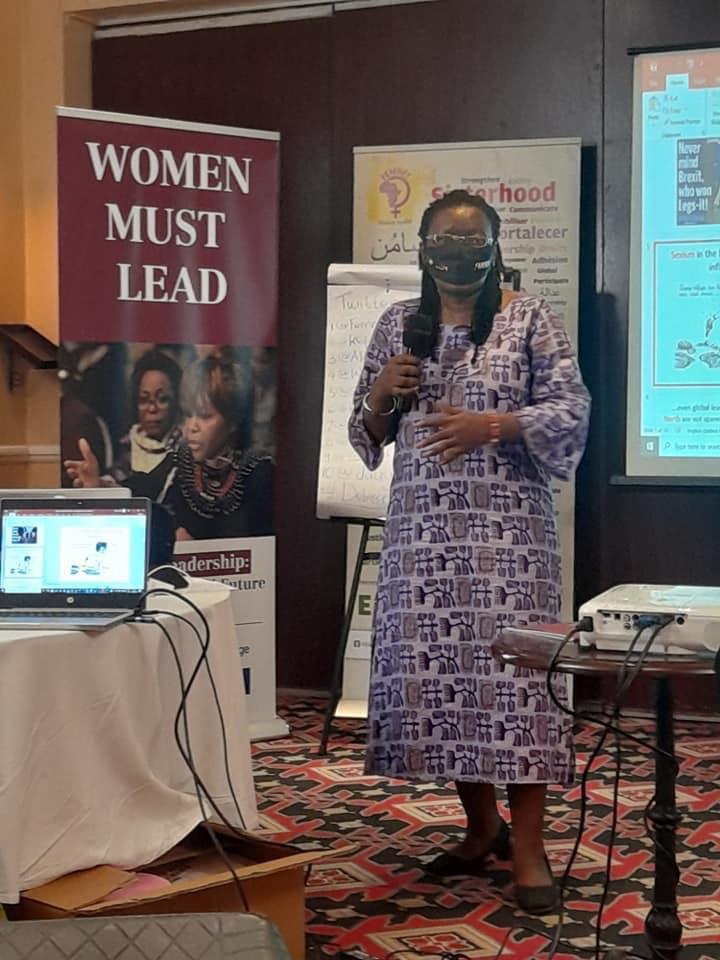
4. What you think it would take to attain more positive stories of women in the Kenyan media? Do male journalists and media leaders have any role to play in this process, and if yes, how do we bring them on board as champions?
It takes deliberate actions and concerted efforts from all stakeholders. AMWIK is working with media outlets to have gender representation in the newsrooms, on-air, and within their teams. We also lobby, advocate and sensitize our members to participate as commentators, analysts, and experts in talk shows as a means to dismantle the manels and fix the underrepresentation of women in the newsrooms through having more women voices as experts and sources of news addressing various issues in our society and of national and global interest. Deliberately we ought to seek out the intersectional groups of women such as survivors, those living with disabilities, and other marginalised groups as voices in the media.
5. If you were to choose the two most important values that shape the way you work and live, what would they be and why?
o Inclusivity. Many people are marginalised globally, which inhibits them from making a contribution that would also impact their lives and others.
o Teamwork. Teams bring different skills-set and diverse ideas for greater impact.
6. If you were to write a letter to your 25-year-old self, what are the top three lessons would you share with your younger self?
Have goals. Define who you are, who you want to be, and the people you wish to have along your life journey.
Keep learning, take risks, and be mindful of the personal relationships you create.
Save and invest from the onset, and watch your health, diet and exercise. Health is wealth.
As a woman in a C-suite position I have learnt that systems, structures and templates are very important in keeping institutions strong. I am also a firm believer that women can, so we all need to find our niche, then give it our best, and as we do so, aim to carry other women with us.
By Patience Nyange and Esther Kiragu
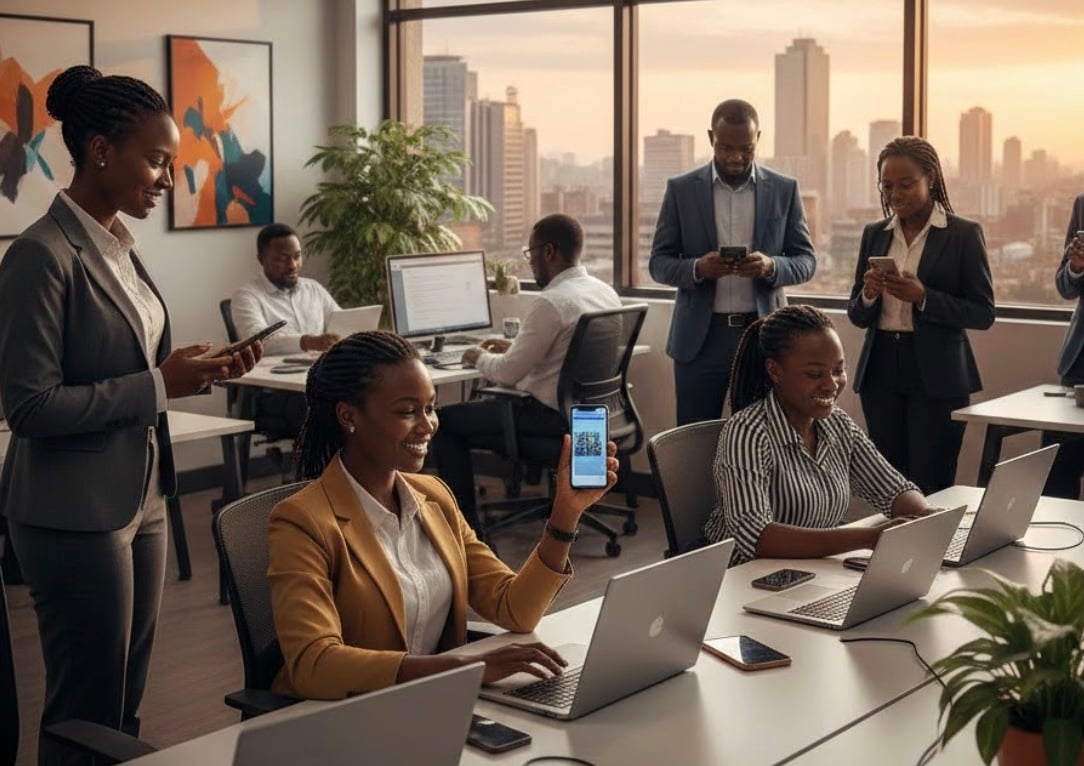
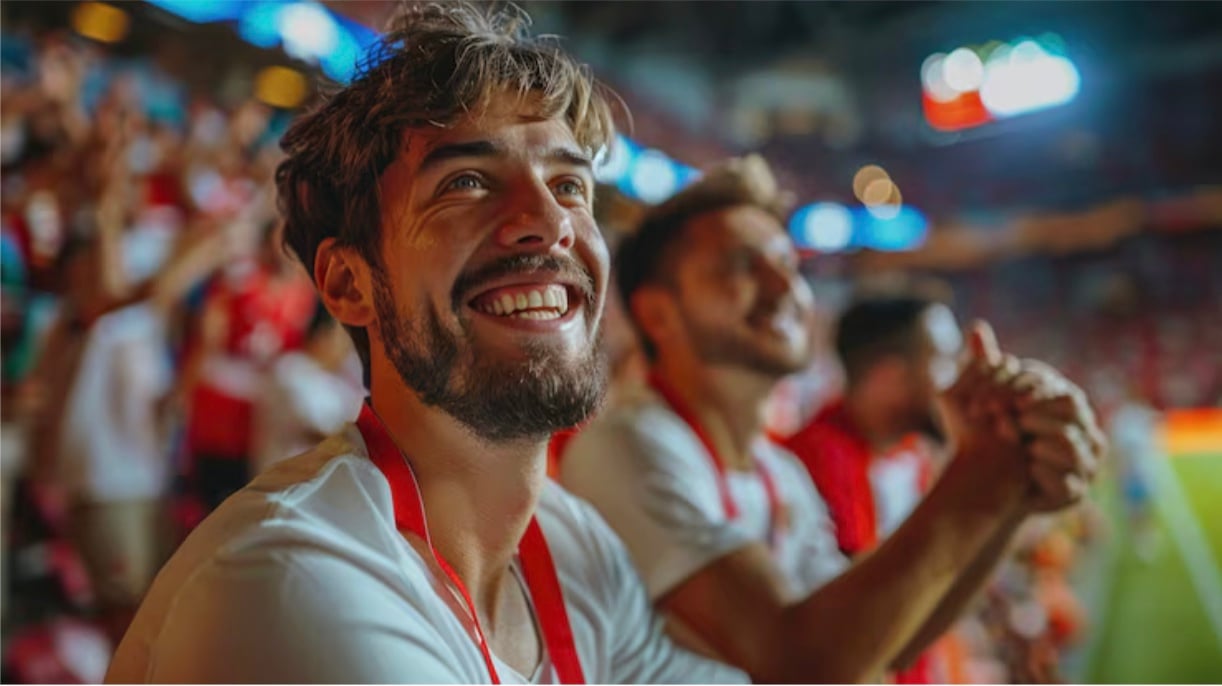
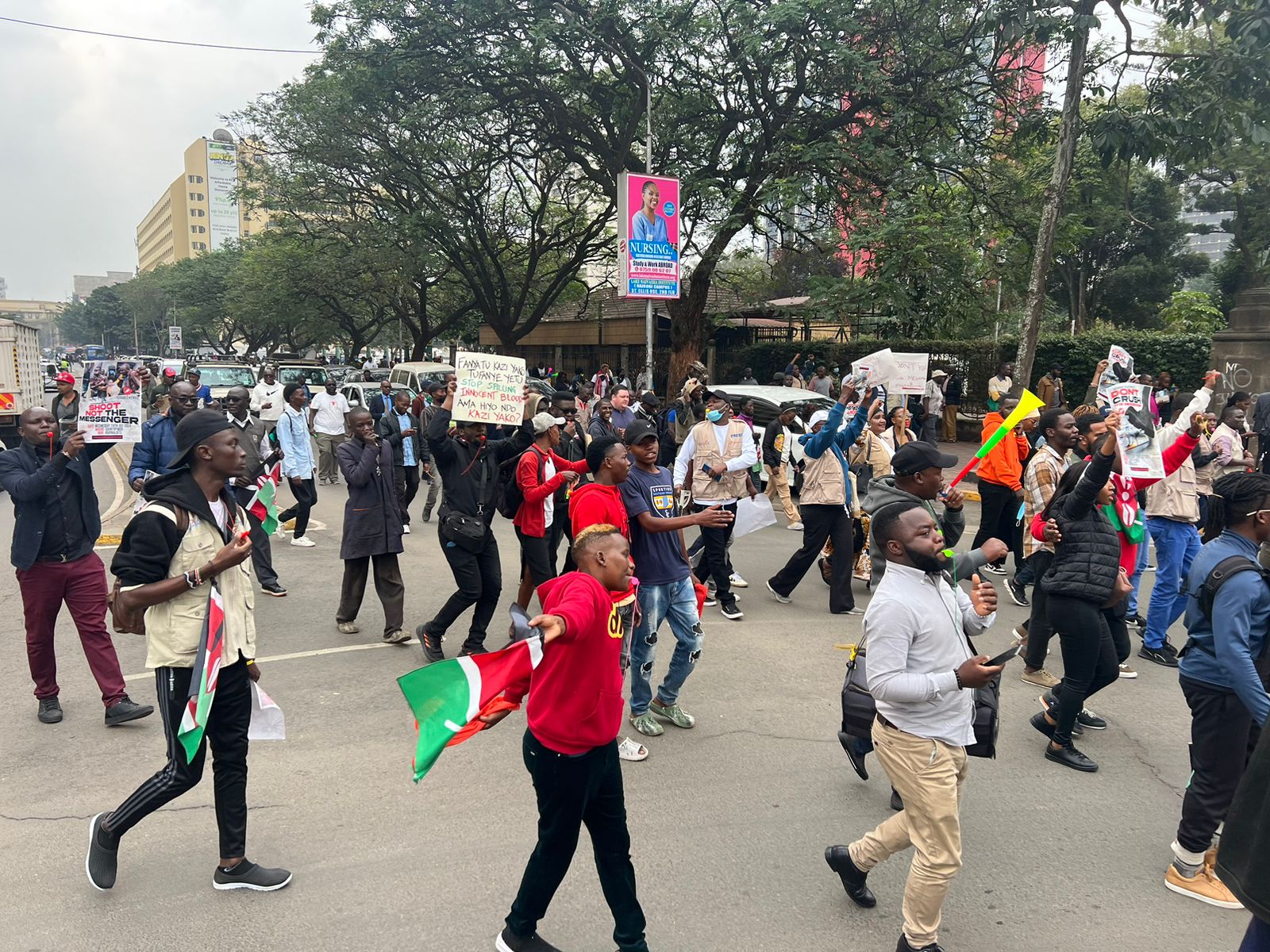
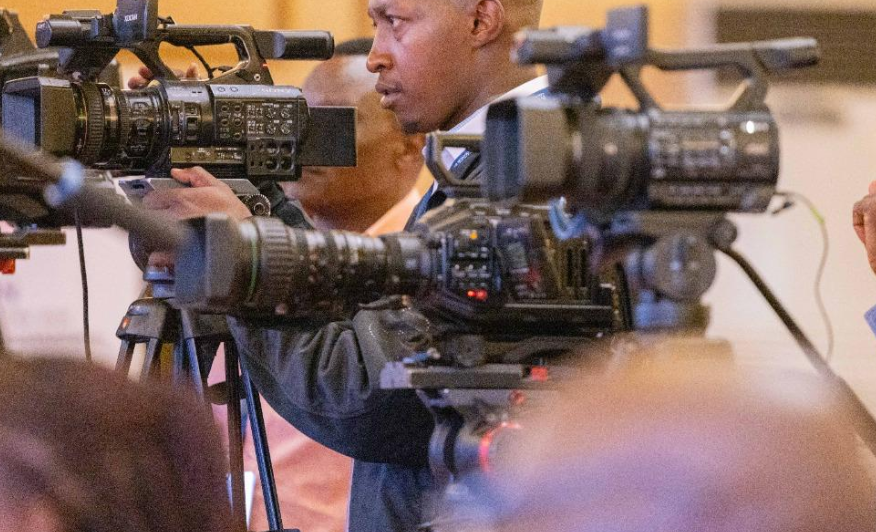
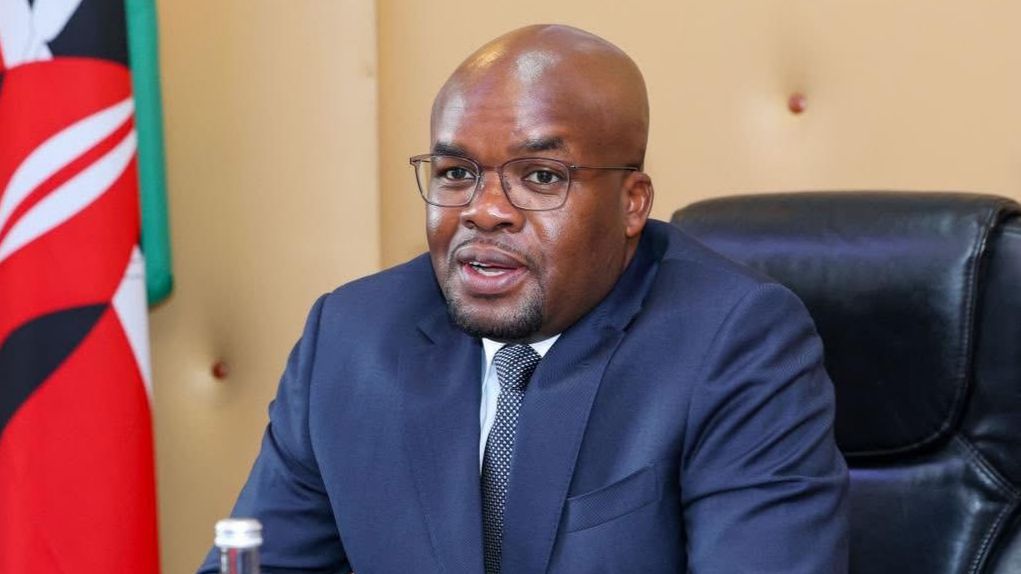
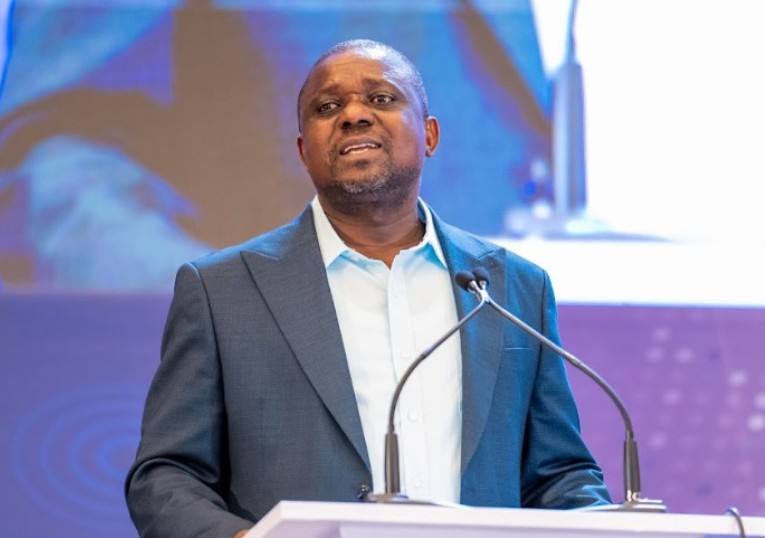
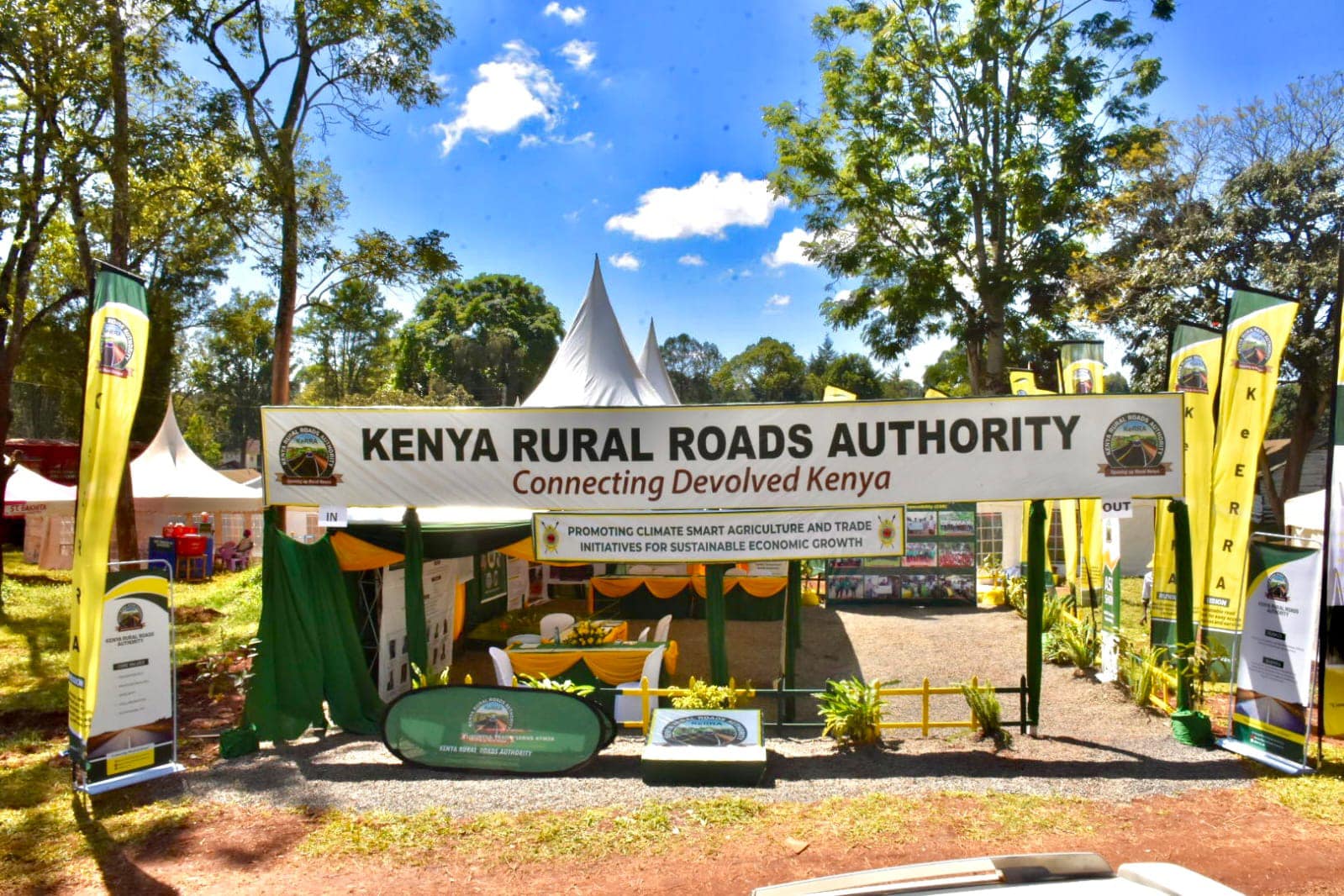
-1692704298.jpg)
